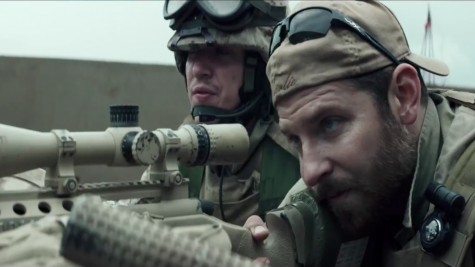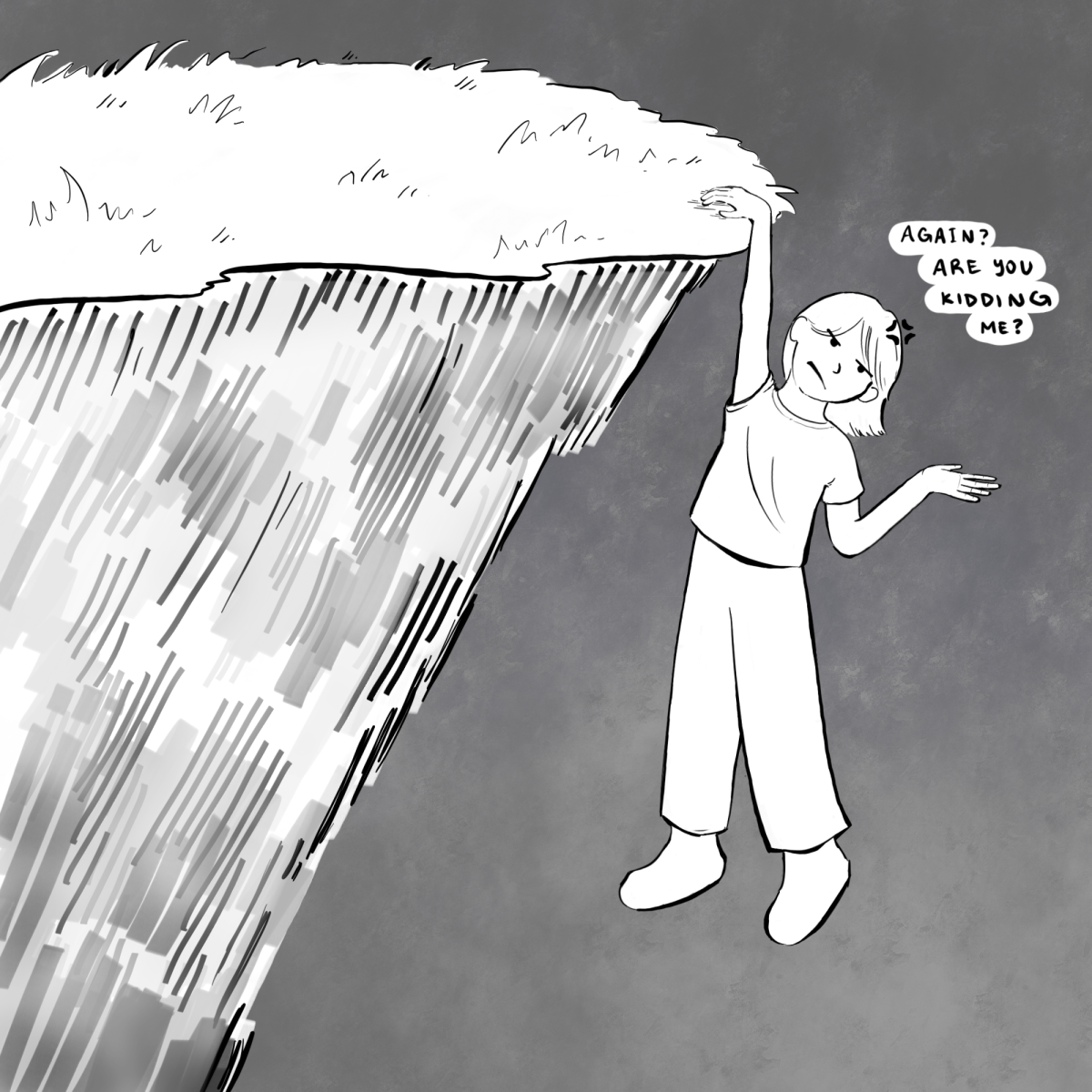Film Review: “American Sniper”
January 25, 2015
It’s been hard for me to find the right words to describe “American Sniper.” It’s not because I don’t have enough words. It’s not that my thoughts cannot be summed up into a single piece of writing.
It’s that I don’t have the words at all.
I typed this with shaking fingers. Coming back from watching the movie, I was filled with a deep feeling of restlessness that rose up in the back of my throat and choked me. My mouth was dry.
In a movie theater that was packed to the gills, after the film ended, not a single person spoke. In dead silence with the credits rolling, not a single voice was heard. Sure, there was the shuffling of feet and the rustle of coats, but let me reiterate this: no one spoke.

Not. One. Person.
The story of Chris Kyle, a Navy SEAL sniper who did four tours in Iraq, is one for the history books. He received two Silver Star medals, one Bronze Star and two Purple Hearts, among a host of other decorations. Credited with over 160 kills officially, the more probable estimate of the number of people he took down in battle is 255.
However, and I hate to use this terminology when referencing human lives, the message of the movie soon became this: quality over quantity.
Director Clint Eastwood’s film is not the story of the 160 confirmed kills, or the 255 probable kills: it’s the story of one. What was it that made a 35-year-old, decorated, successful Navy SEAL stop after four tours?
Instead of focusing on the story of the glory of battle or the victory of winning an entire war, “American Sniper” is the story of small victories, of a single man—an extraordinary man, but a single one nonetheless. A departure from war stories that are all encompassing, as was the trend with past war movies, this movie is a piece of micro-history that is, nonetheless, a blade through the heart of the American spirit.
This movie is not for the faint-hearted.
From the sight of sniper hits to the torture of a young Iraqi boy by power drill, the film makes the viewer uncomfortable, but not in a bad way. The drill wasn’t there for gratuitous violence: the drill was there to tell the bloody, disturbing truth.
The film was visceral in a way that made my stomach flip over quite a few times, and not only in the scenes taking place in Iraq. The story of Kyle was also a story of balance. Making sure that the war existed separately from his home life was no easy feat, and the movie captured that perfectly. Bradley Cooper in his role as Kyle was absolutely amazing—during the film, I couldn’t feel any separation between Cooper and Kyle. They became one and the same on screen. It was only at the end of the film, when an image of Kyle and his wife in real life came on screen, that I was reminded that Cooper and Kyle were, in reality, two separate entities.
Cooper portrayed the raw emotion in an outstanding way. Whether it was the way his voice broke as he spoke on the phone to his wife, telling her that yes, at last, he was ready to come home, or it was the way that rough language that we always imagine being used by soldiers was seamlessly integrated into a flawless Texas drawl, I was enraptured.
The entire film had me enthralled. I had to know more about this story, and I had to see if these people made it back home. My heart leapt into my throat when they reunited with family, and it sank into my stomach when the news arrived that they were dead. This film had a choke hold on me that I still haven’t been able to shake off.
I would be lying if I said that the movie didn’t hit home for me.
I don’t know anyone who was in Iraq. I don’t know anyone who currently is in the American military. The fact that the events of this film happened less than 10 years ago is what absolutely skewered me.
The simple truth is that this film isn’t about one of the world wars, or about the war in Vietnam, from which our generation can feel removed. We can easily say about most wars that we didn’t live them, therefore they don’t affect us now. We can easily say that Dec. 7, 1941 is just a day we remember a bunch of ships in the Pacific and brush it off. We can easily say that Sept. 2, 1945 is the day that World War II ended, and forget about it.
But we cannot so easily forget about Iraq. We cannot so easily forget about Afghanistan.
We cannot so easily forget about Chris Kyle.
American Sniper is rated R for strong and disturbing war violence and language throughout including some sexual references.







